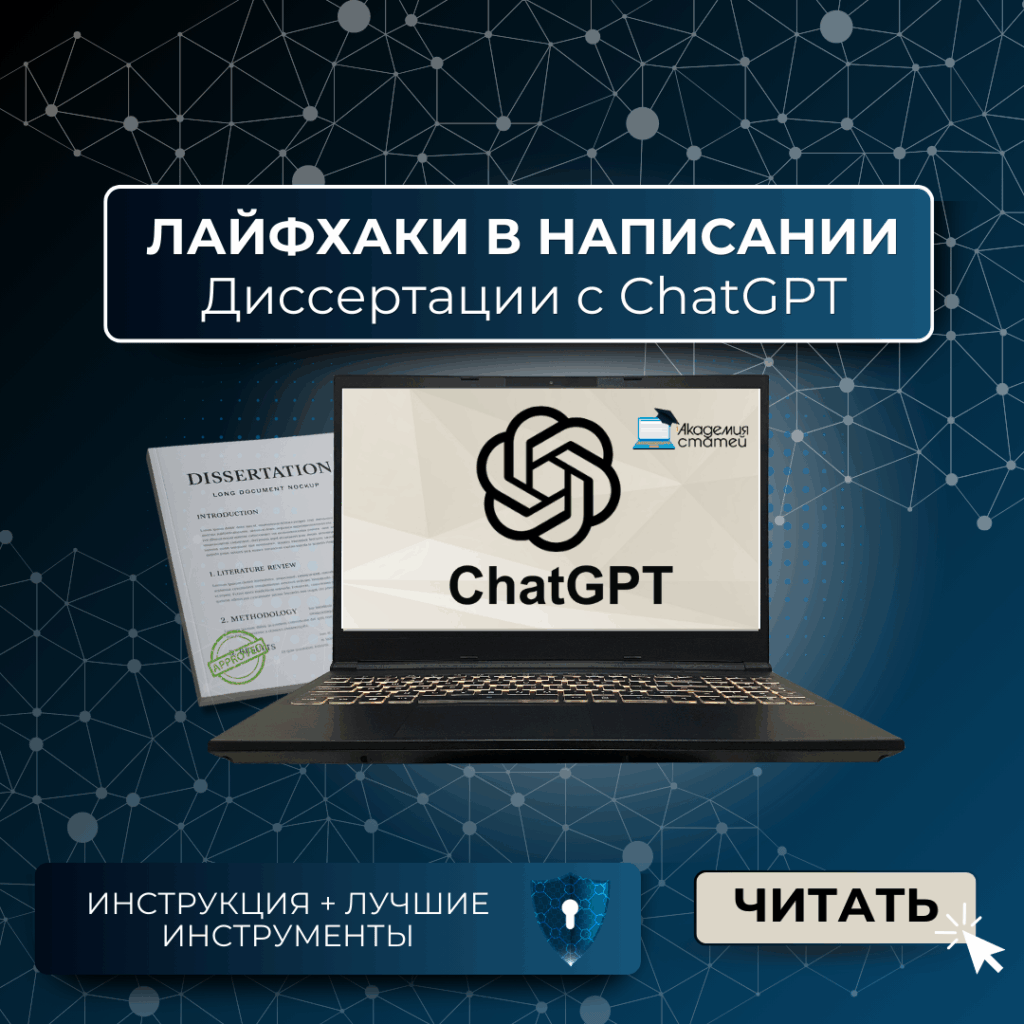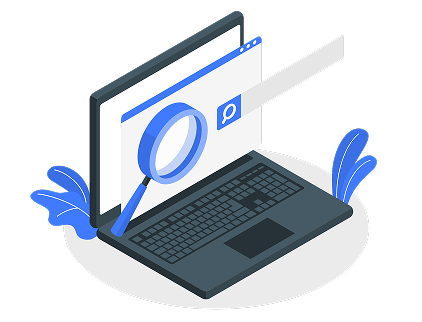In this article you will learn:
📍 Что такое ORCID и как он приносит пользу авторам;
📍 Как правильно зарегистрировать ORCID;
📍 Как узнать свой ORCID ID;
📍 3 способа добавить свои работы в аккаунт ORCID, если они не появляются там автоматически.
What is ORCID ID?
ORCID ID is a popular international system that assigns a unique alphanumeric code to each author publishing scientific material. This 16-character code is designed to accurately identify authors.
How does ORCID ID benefit researchers and authors?
This code solves the problem of non-unique names for many scientists. Furthermore, if a surname changes after marriage, this can complicate the search for scientific papers by interested parties.
This isn't the only difficulty the scientist faces. Problems can arise from the tradition of using initials and the idiosyncrasies of different languages.
The organization that launched this independent registry is called ORCID Inc. The database went live in October 2012, although the project was announced in 2009. The organization was registered in 2010 in the United States (Delaware).
Integration with other identification systems is possible, which will be discussed in more detail below.
What benefits does using ORCID ID provide to a scientist?
✅ Многие редакционные коллегии признанных международных журналов требуют этот идентификатор при подаче публикаций.
✅ Этот код часто необходим при подаче заявок на гранты.
✅ ORCID ID важен для участия в международных конференциях.
✅ Код усиливает репутацию автора в научном сообществе, предоставляя информацию о том, как представлены его статьи в информационном поле.
The ORCID system offers a wide range of capabilities. For example, it allows you to import author information from scientometric databases such as WoS and Scopus. A special function is provided for this purpose, linking accounts to internal identifiers on these platforms.
It's worth noting that ORCID tools are still being developed. Additional features include manual data entry. In practice, this means authors can independently create a portfolio of their work and write a brief introduction, increasing their visibility among other researchers and people interested in science and information on the topics they work on.
How to register with ORCID?
First, it's important to log in to the system through the official resource—orcid.org. Then follow these steps:
1. Open the “For Researchers” section.
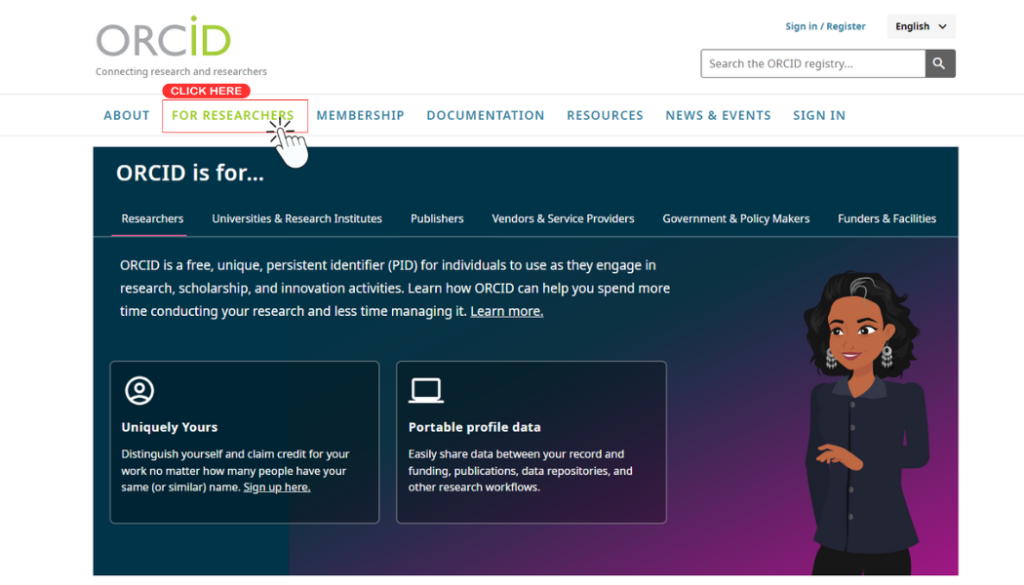
2. Click on the “Register for an ORCID iD” link.
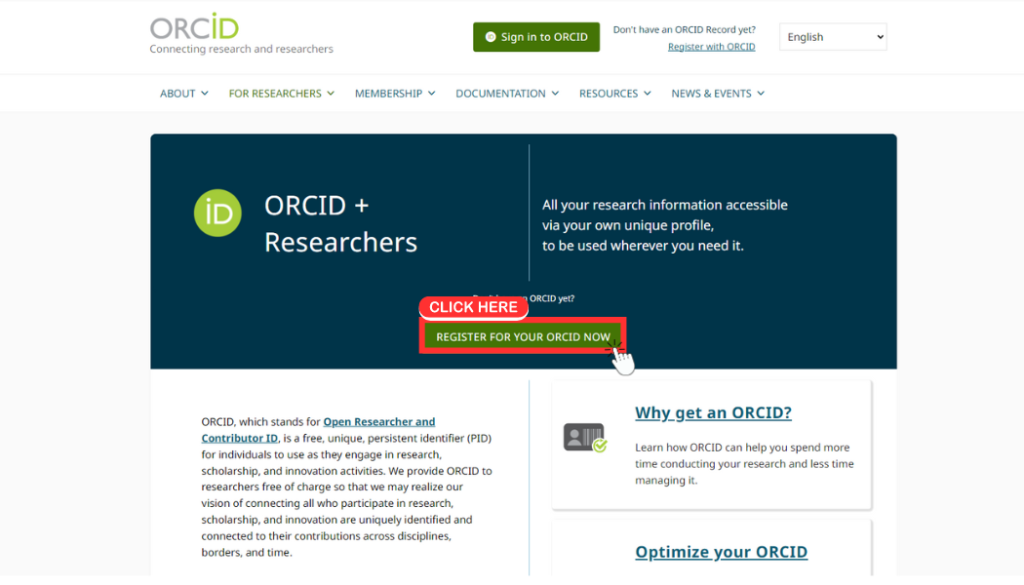
3. Fill in all required fields, starting with your first and last name and ending with your password and its confirmation.
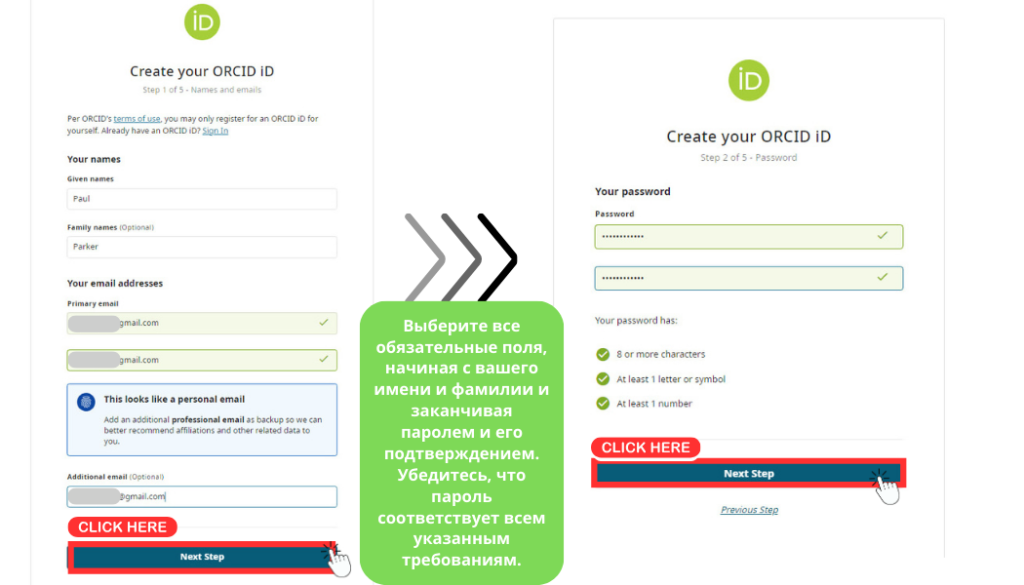
4. Adding relevant information about your affiliation helps differentiate you from other researchers with similar names. Be sure to fill out the "Organization" field!
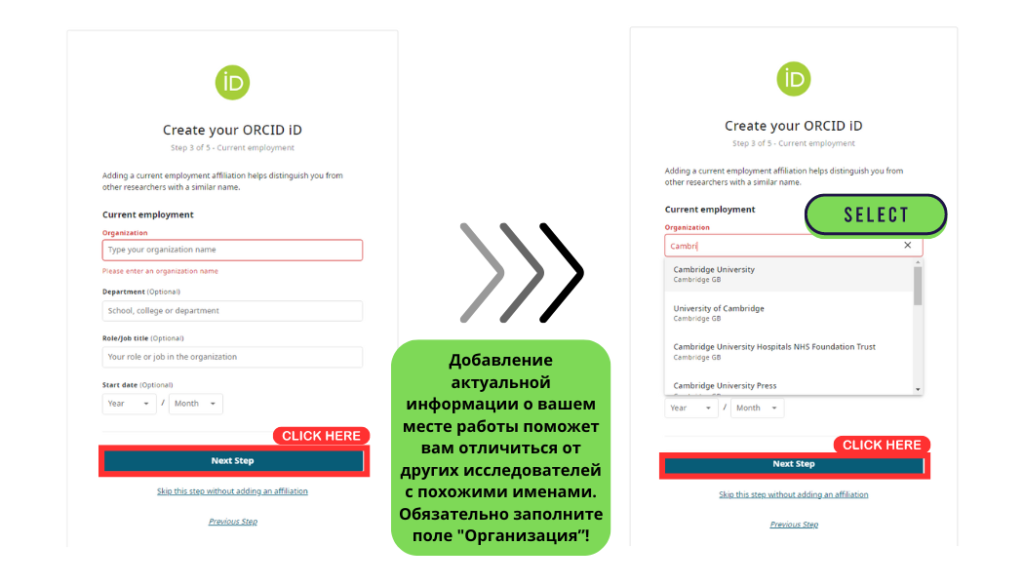
5. Visibility Settings – What default visibility should you set for new items added to your ORCID record?
Learn more about visibility settings.
You should select "everyone" to ensure that everyone can see your affiliation.
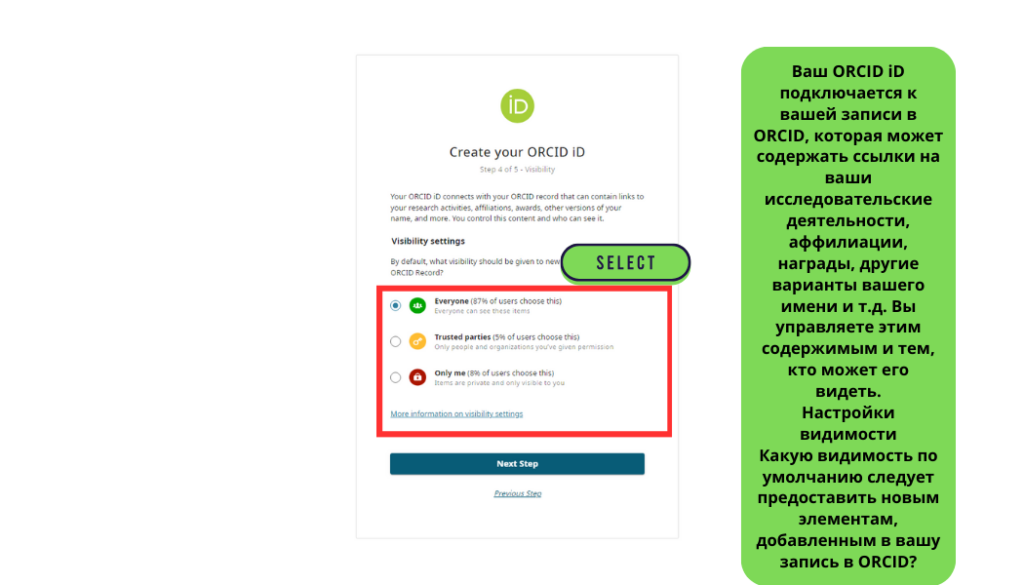
6. Choose whether you want to receive information about updates and changes in the system;
7. Review the privacy policy terms and fill in the required fields;
8. Check the accuracy of the information entered;
9. Complete the registration by clicking the appropriate button.
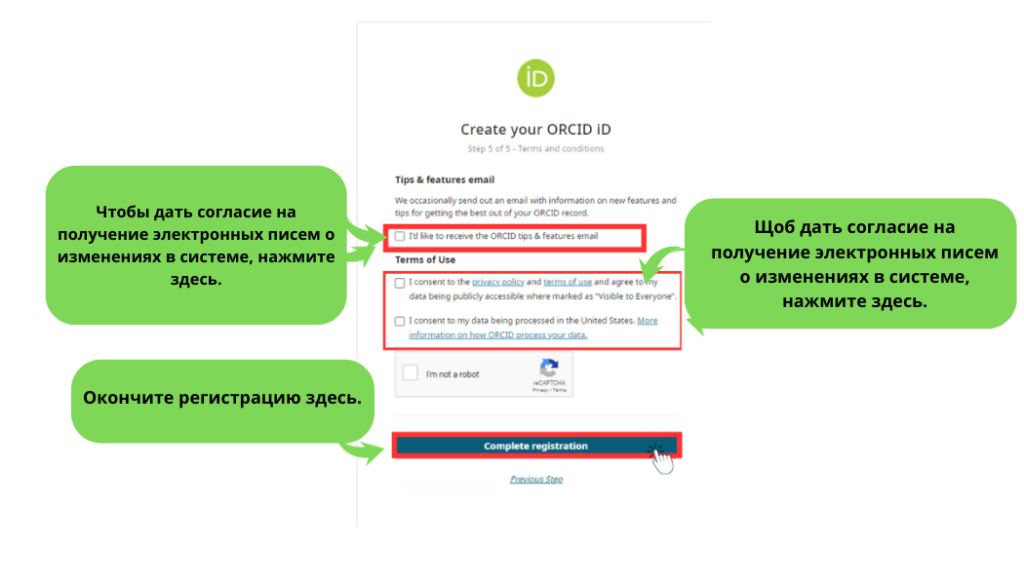
How do I find my ORCID ID?
Finding your ORCID ID is easy. To find your ORCID, follow the instructions below.
You will find this information in the upper left corner of the page. You can also use the link https://orcid.org/my-orcidEven if you've forgotten your login password, you can recover it using the email address you provided during registration.
Therefore, it's important to ensure the accuracy of your information during registration. By carefully checking all ORCID parameters, you'll be able to register without any issues and continue using it seamlessly.
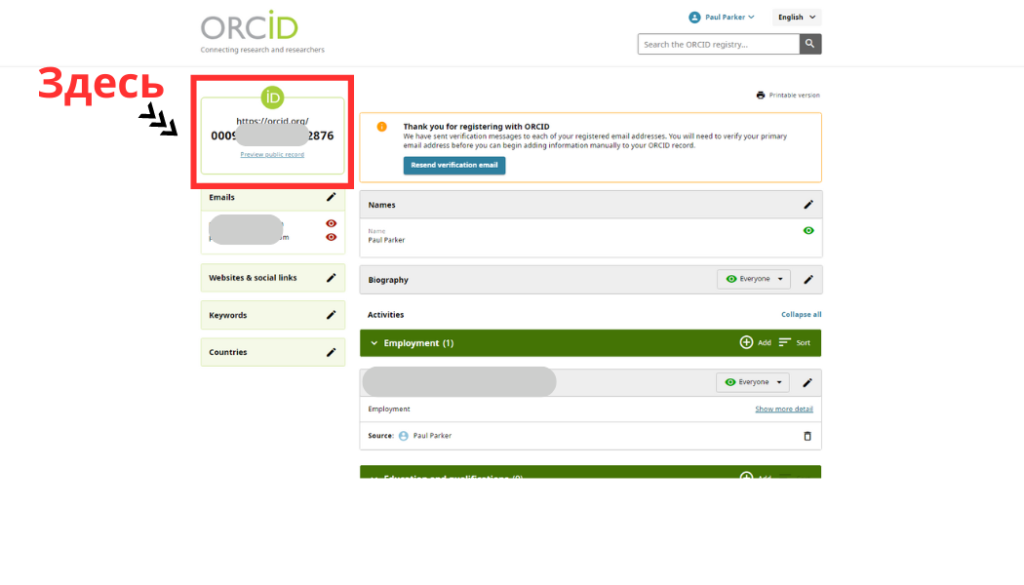
How do I add my articles to ORCID?
There are three ways to add your work to ORCID:
1. The easiest way is by DOI (if available):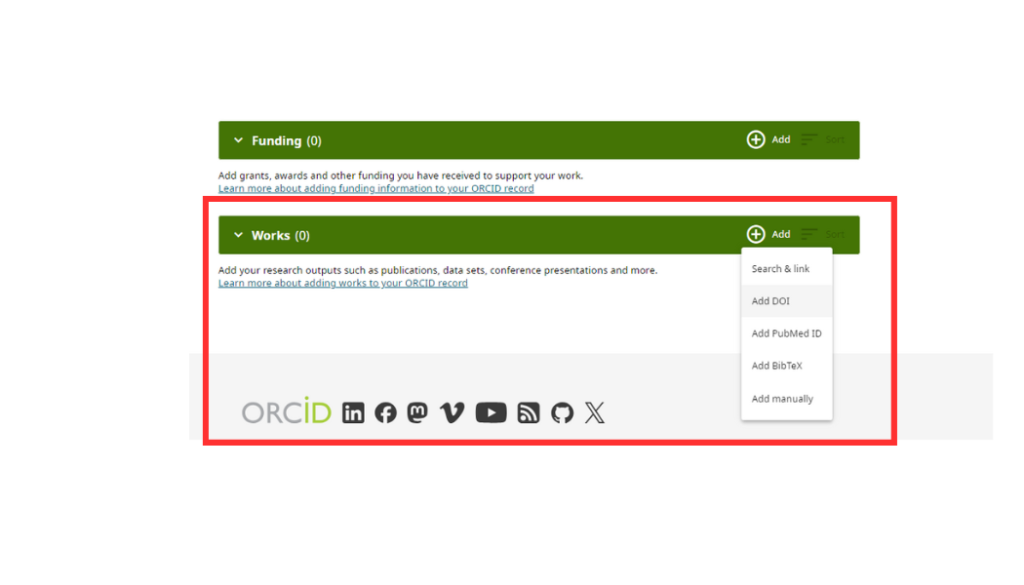
Copy the article's DOI and paste it into the text field:
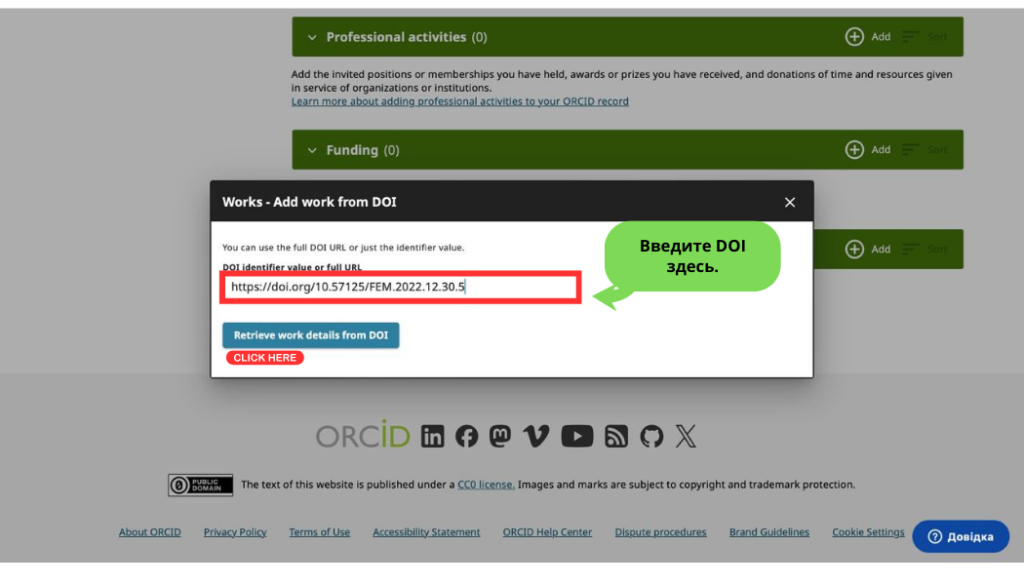
Check that all information is correct, then click "Add this work to your ORCID record."
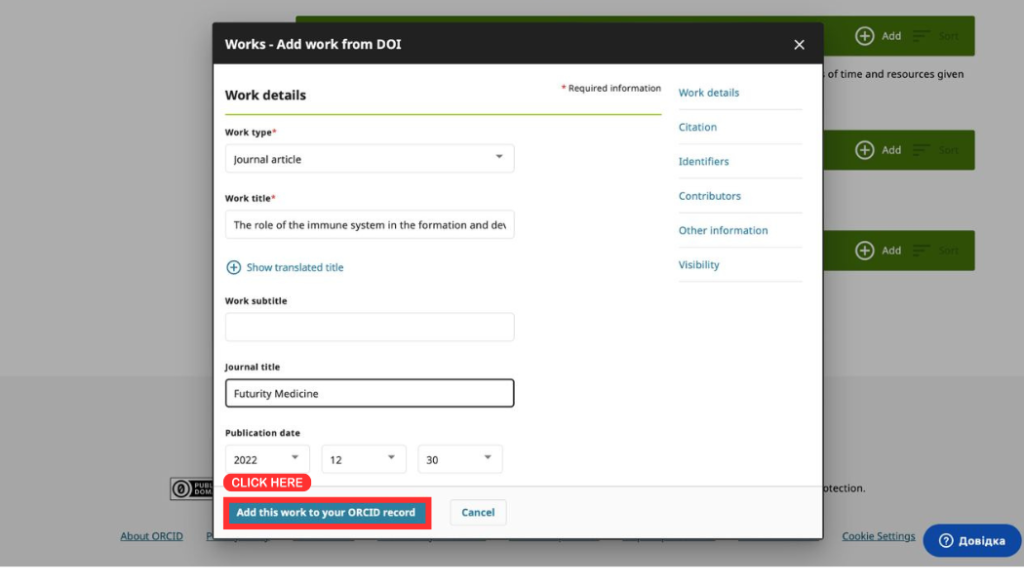
2. A slightly more complex, but still simple way is to download a BibTeX file.
Download the BibTeX file from the website—if it's on OJS, there's an option to download it automatically—download:
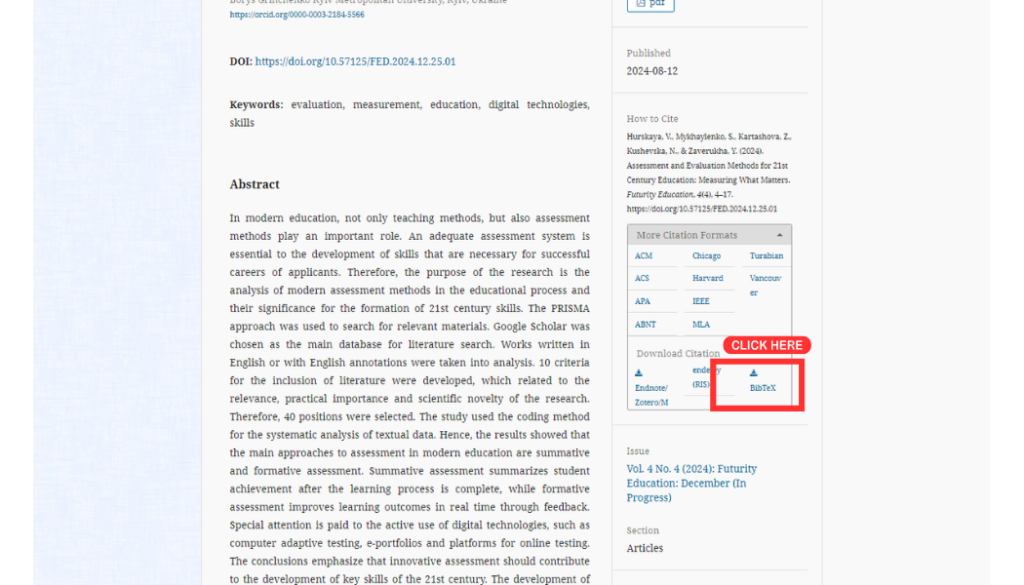
Then upload the file and check the box as shown in the screenshot. Congratulations, your article is ready!
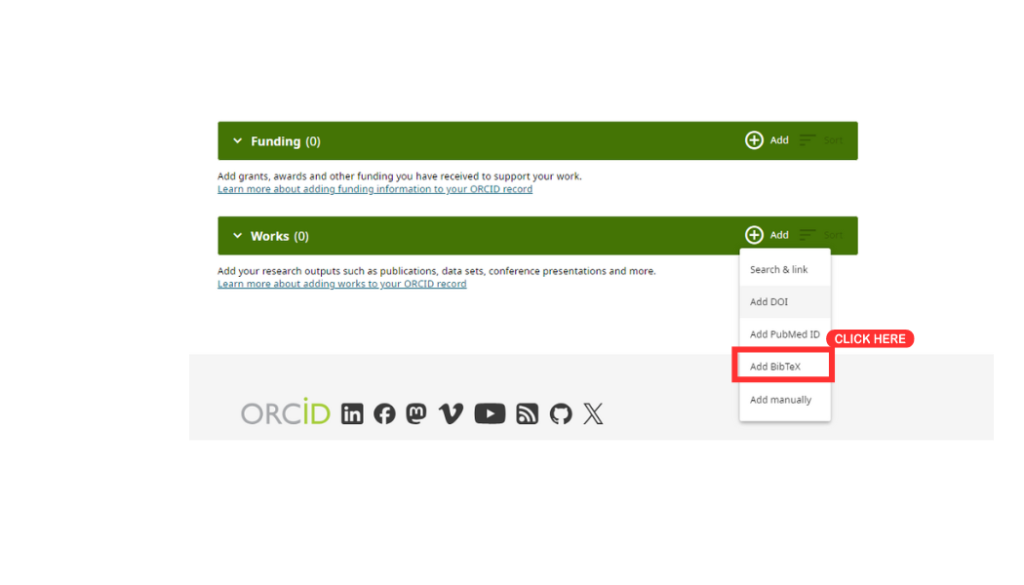
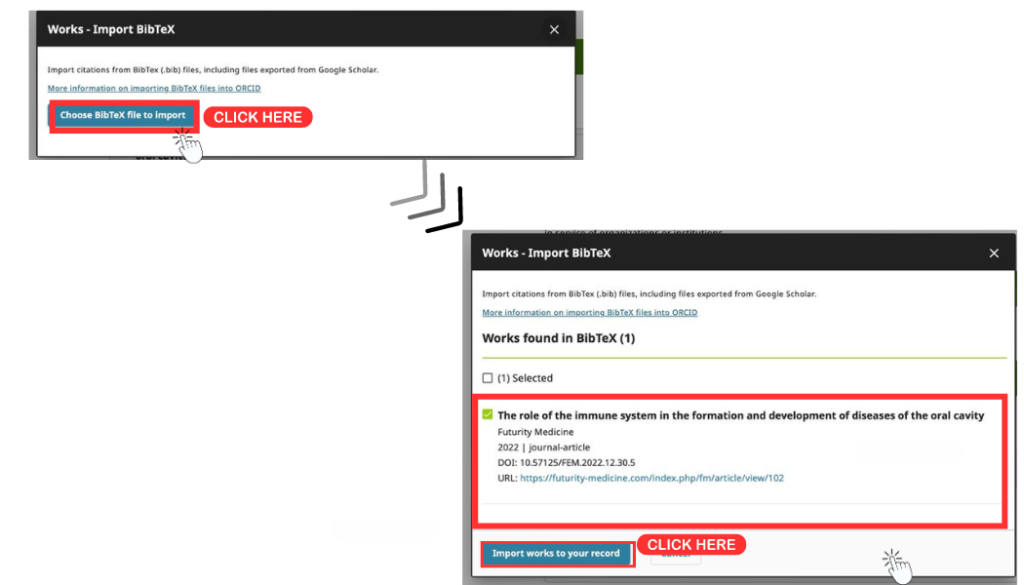
3. The most difficult method (if the article does not have a DOI or BibTeX file) is to manually add all metadata.
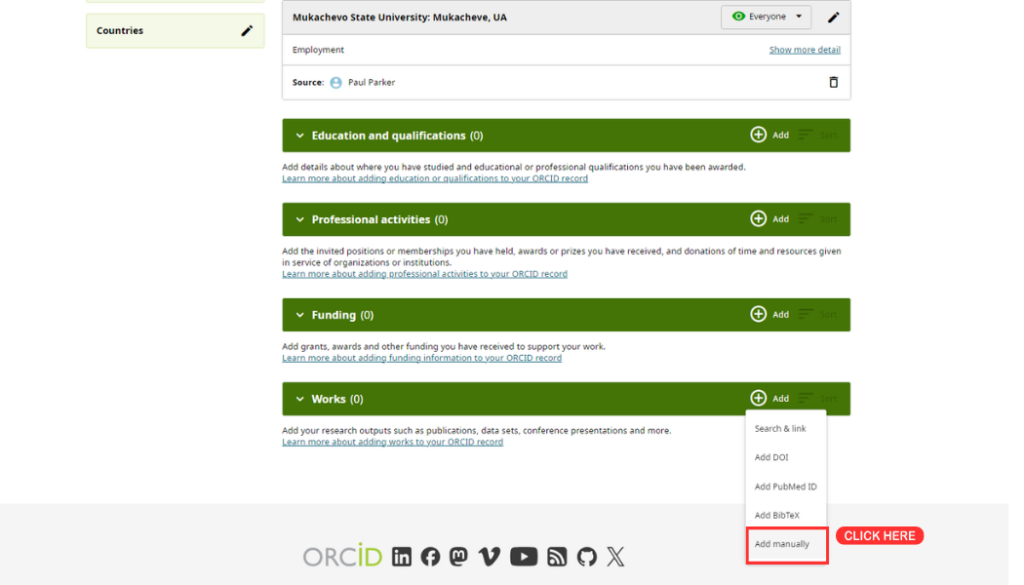
First, select "magazine article" as shown in the screenshot:

Then enter the article title, making sure you use English! Enter the journal title, publication date, and the article link.
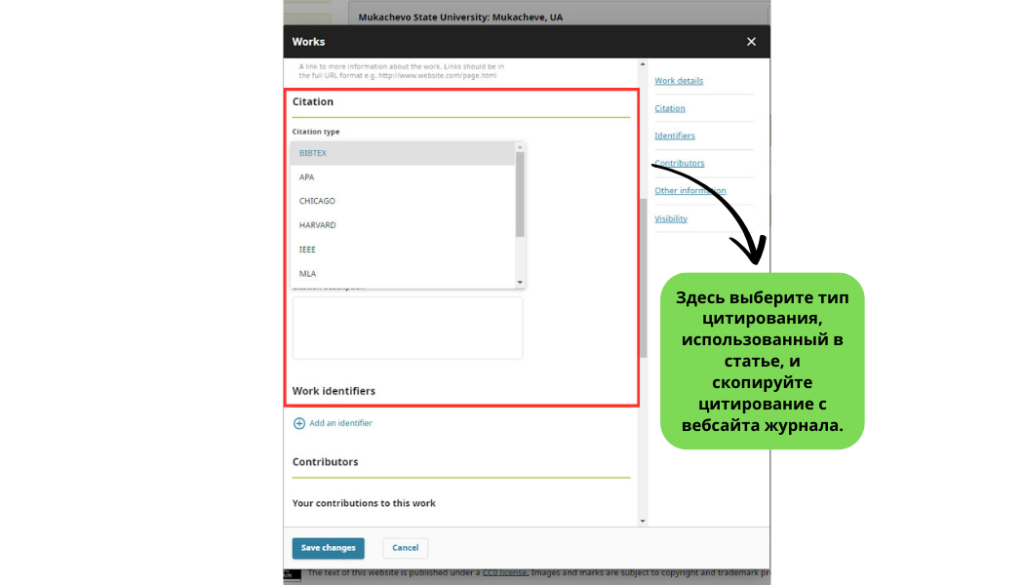
Finally, fill in the remaining fields and click the "Save Changes" button:
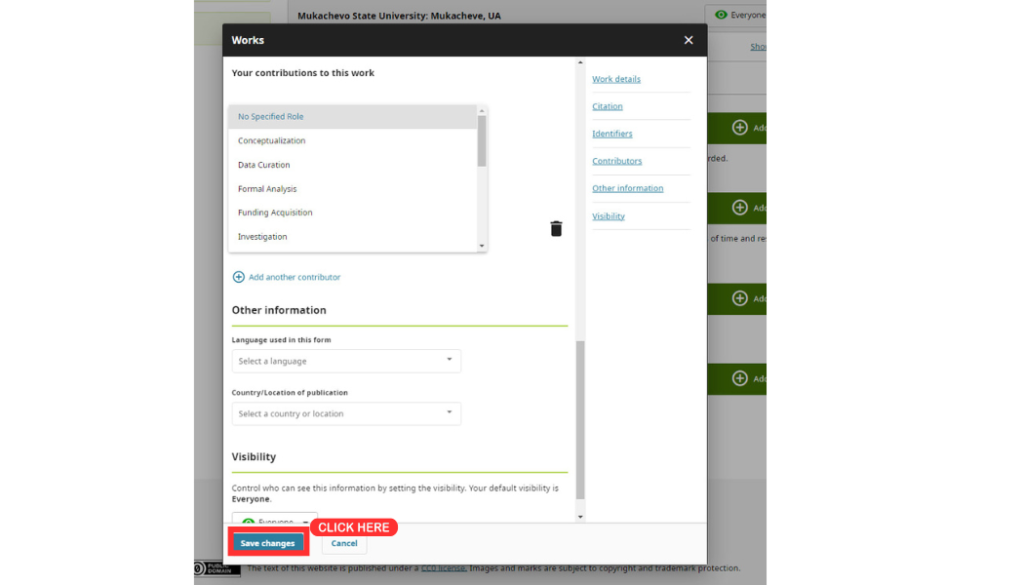
Conclusions:
For modern scientists, the extent of their interactions with like-minded peers plays a significant role in their scientific careers. This is why most researchers strive to publish their materials in journals indexed in prestigious scientometric databases. To avoid getting lost among authors with the same last name and maintain access to their publications even if their last name changes, an ORCID code is indispensable.
Articles can be imported and exported from ORCID by linking your account to profiles in scientometric databases. You can also upload your published works that weren't previously available online. Finally, the platform's extensive capabilities make it attractive to many researchers. Using it, you can:
🔸 Организовать информацию о своей работе.
🔸 Получить больше возможностей для грантовых программ, что позволит вам достичь нового уровня финансовой поддержки для вашего исследования.
🔸 Улучшить свой индекс цитирования, когда ваша работа будет признана коллегами.
Thus, the ORCID platform has expanded its tools for interacting with scientometric databases and offers other valuable features. Using the website, researchers can explore these functions in more detail.




